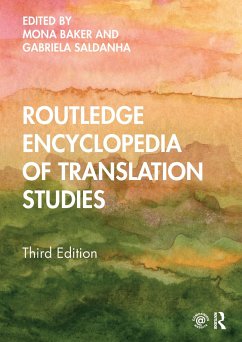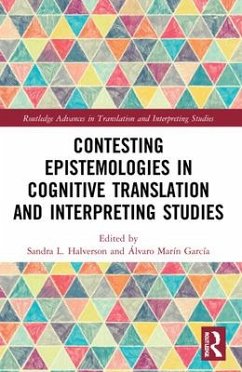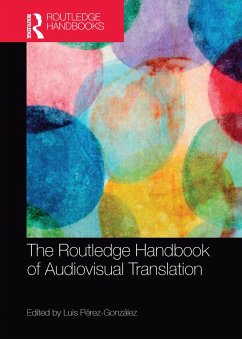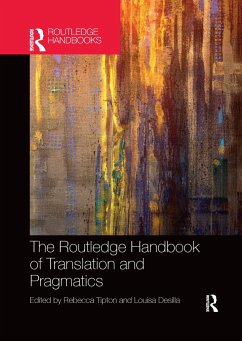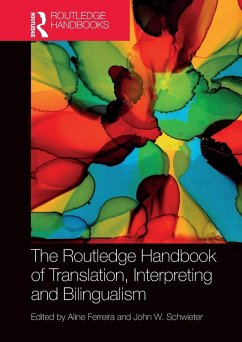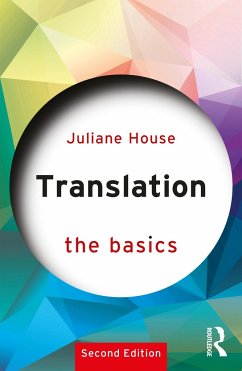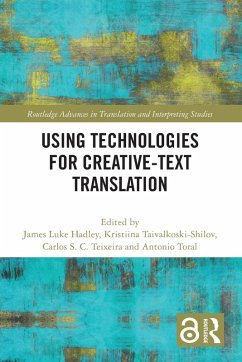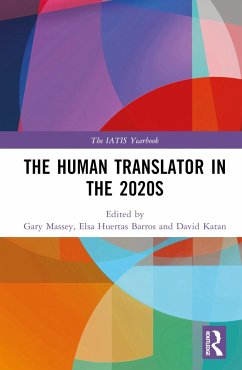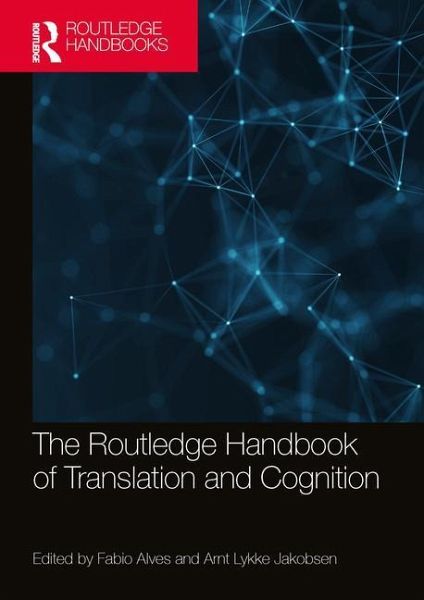
The Routledge Handbook of Translation and Cognition
Versandkostenfrei!
Versandfertig in 6-10 Tagen
48,99 €
inkl. MwSt.

PAYBACK Punkte
24 °P sammeln!
The Routledge Handbook of Translation and Cognition provides a comprehensive, state-of-the-art overview of how translation and cognition relate to each other, discussing the most important issues in the fledgling sub-discipline of Cognitive Translation Studies (CTS), from foundational to applied aspects.With a strong focus on interdisciplinarity, the handbook surveys concepts and methods in neighbouring disciplines that are concerned with cognition and how they relate to translational activity from a cognitive perspective. Looking at different types of cognitive processes, this volume also ven...
The Routledge Handbook of Translation and Cognition provides a comprehensive, state-of-the-art overview of how translation and cognition relate to each other, discussing the most important issues in the fledgling sub-discipline of Cognitive Translation Studies (CTS), from foundational to applied aspects.
With a strong focus on interdisciplinarity, the handbook surveys concepts and methods in neighbouring disciplines that are concerned with cognition and how they relate to translational activity from a cognitive perspective. Looking at different types of cognitive processes, this volume also ventures into emergent areas such as neuroscience, artificial intelligence, cognitive ergonomics and human-computer interaction.
With an editors' introduction and 30 chapters authored by leading scholars in the field of Cognitive Translation Studies, this handbook is the essential reference and resource for students and researchers of translation and cognition and will also be of interest to those working in bilingualism, second-language acquisition and related areas.
With a strong focus on interdisciplinarity, the handbook surveys concepts and methods in neighbouring disciplines that are concerned with cognition and how they relate to translational activity from a cognitive perspective. Looking at different types of cognitive processes, this volume also ventures into emergent areas such as neuroscience, artificial intelligence, cognitive ergonomics and human-computer interaction.
With an editors' introduction and 30 chapters authored by leading scholars in the field of Cognitive Translation Studies, this handbook is the essential reference and resource for students and researchers of translation and cognition and will also be of interest to those working in bilingualism, second-language acquisition and related areas.



